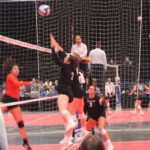KCC Library Contributed Column
“Information Search Strategies: Good and Quick”
In an ideal world, we students and scholars would have infinite time to thoroughly research each topic of interest and carefully assess and evaluate every article, book, or video we find. However, in the rush of our daily lives time for careful evaluation may run short. Add in concerns about misleading or outright false information reported on many websites and news outlets, and it’s no surprise that we find ourselves looking for the quickest ways to get at good information.
Librarian David Schwieder in his article “Low-Effort Information Searching” recommends that we all learn time-saving methods to supplement more in-depth approaches to research. Here are a few we at the Kirkwood Library recommend.
Tip #1: Google, but smarter: There are dozens of Google hacks that give the searcher some control over Google’s default algorithm. Here is one that every searcher should be ready to use: the site limiter. This limiter lets the searcher limit the results of a search to only those web pages in a specific domain (like .gov, .edu, or .org).
For example, let’s say you’re searching for information on the topic coronavirus, but want to quickly go to information that is likely to be authoritative. One option would be to limit your coronavirus results to only U.S. government sites by adding site:gov to your other keywords. You’ll quickly get results on coronavirus from the Centers for Disease Control, the FDA, and even OSHA websites. This limiter can be used on any domain, such as site:edu, or a more specific domain such as site:nytimes.com. Add the site limiter to any keyword search.
Tip #2: Tap into the expertise of librarians around the world: Many libraries use a software called “LibGuides” to create helpful guides to researching many different topics. Add the word libguide to your keyword search on Google to go directly to available librarian-created research guides on your topic. For example, the search climate change libguide returns many research guides that help students locate reliable websites and library subscriptions on the topic of climate change.
Tip #3: Use the Library all-in-one search: The Kirkwood Libraries website (www.kirkwood.edu/library) has a single search box that searches only librarian-selected resources, such as books, magazine and journal articles, and streaming video. This search provides a quick entry into the wealth of library resources available for your topic. Although it doesn’t search everything at once, it searches a lot!
Try one of these tips today to start adding to your “good and quick” search tools. For even more research help, see the Kirkwood Library guide at: guides.kirk
Categories: Contributed, Feature, Library Update










